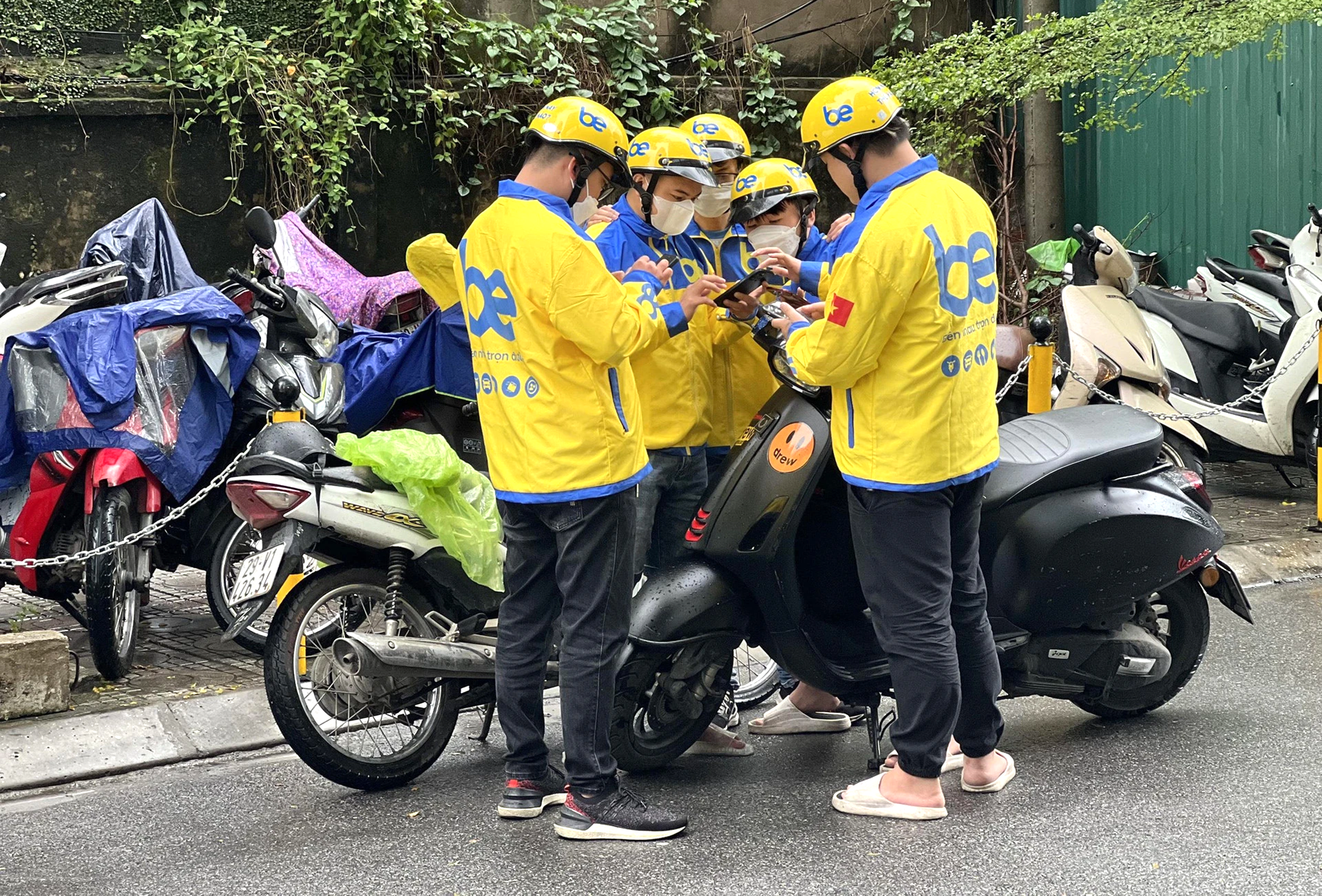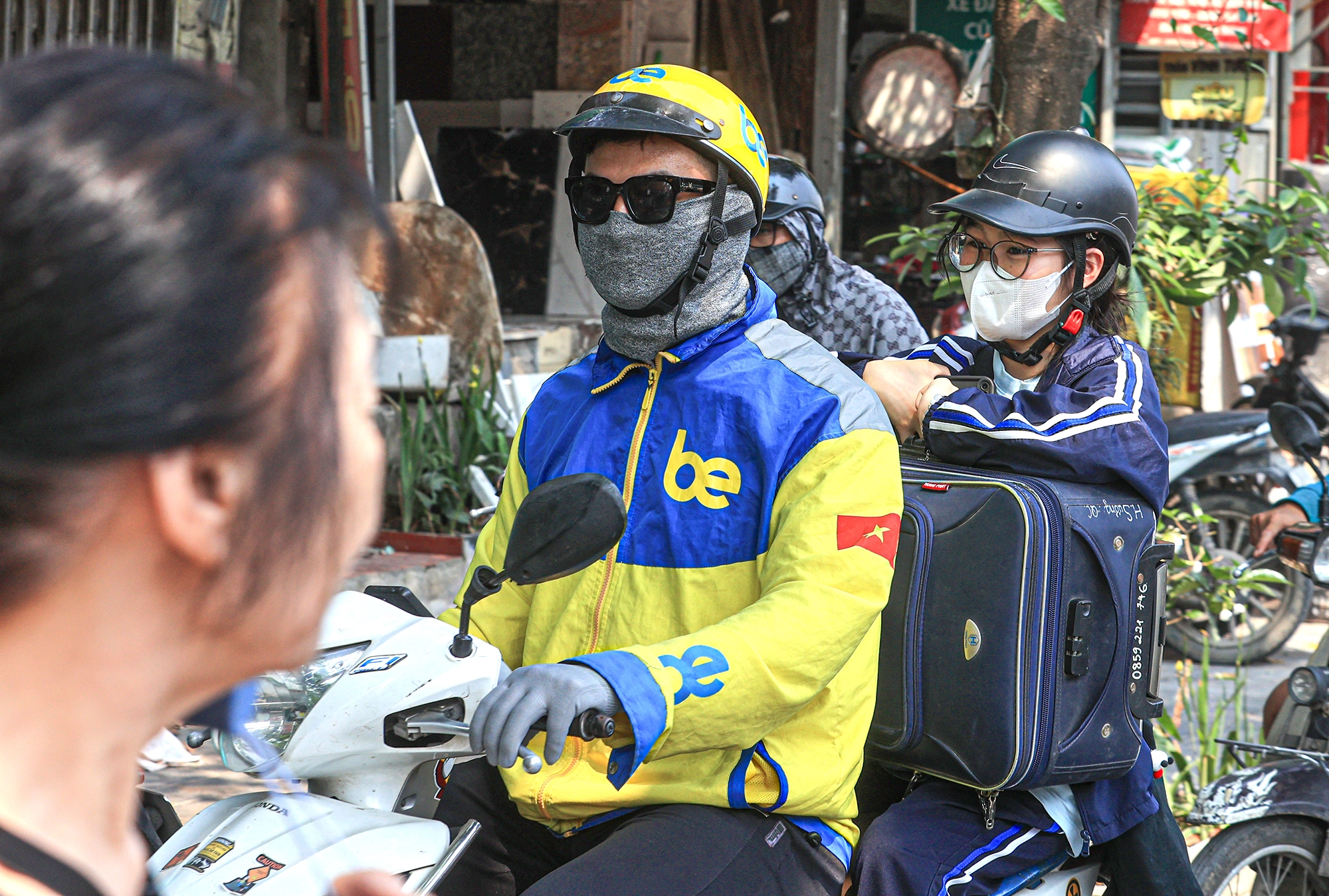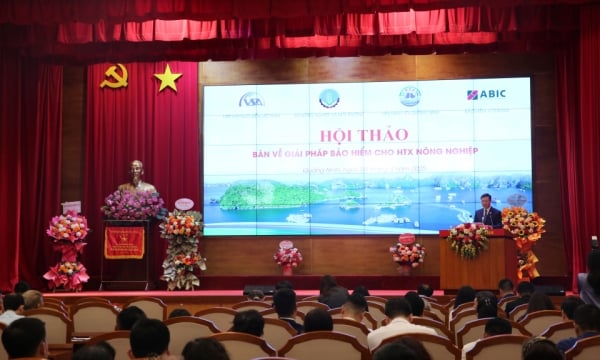Not covered by insurance because of "being a partner"
For more than 5 years working as a full-time technology driver, although he knows the job is hard, to make a living, Mr. Nguyen Van Phong (Kim Thanh, Hai Duong) often works more than 12 hours, almost without a day off.

Many opinions say that technology car companies should be forced to pay social insurance for drivers (illustrative photo).
"Technology drivers do not have social insurance, even though the company collects commissions and personal income tax from rides. I am very worried about my future life," Phong shared.
According to a survey by the Vietnam General Confederation of Labor, there are about 200,000 car and motorbike drivers nationwide who are partners of the Grab ride-hailing app, most of whom are between the ages of 25 and 40, not including other companies. Of these, only 7% participate in voluntary social insurance. Many drivers expect their companies to co-pay their social insurance premiums, like other taxi drivers.
According to the survey, due to the nature of their work, technology drivers face high pressure and work-related accidents, without support for meals, vacations, or regular health check-ups. Their income is mainly the remainder after deducting for the company and bonuses for exceeding the quota.
Mr. Khuat Viet Hung, Director of the Institute of Transport Strategy (Ministry of Transport), said that with the ambition to dominate the market, Grab implemented many solutions, leading to many hot development periods. Many drivers borrowed money to buy cars but had difficulty paying off their debts, creating many social consequences. Technology cars also do not have insurance and are not concerned about people's lives.
According to Mr. Nguyen Cong Hung, Chairman of the Hanoi Taxi Association, Grab has hundreds of thousands of drivers nationwide, but most of them do not pay social insurance, which greatly affects social security. The biggest problem is that application providers like Grab only consider drivers as "partners" and do not have labor contracts, so drivers are not subject to compulsory social insurance.
Driver looking forward
According to PV's research, currently ride-hailing apps such as Grab, Be, Gojek only support accident insurance and partially support health insurance costs. The application method of each company is also different.

Technology drivers face high work pressure and work accidents. Illustration: Ta Hai.
For example, Grab has accident insurance, but the scope of insurance is only from the time the driver is available to receive a ride, including the time before and during the ride. In addition, Grab has a health insurance package and only supports a part of the cost, limited to the area and the participating drivers.
Be is applying comprehensive accident insurance for drivers during the pick-up period, while waiting, even when turning off the application; providing health insurance for drivers in case of illness, disease... However, after 3 months, Be will review the driver's performance to decide the insurance level.
Discussing the draft Law on Social Insurance (amended) at the National Assembly recently, delegate Tran Thi Dieu Thuy (HCMC) proposed to include technology car drivers in the additional group participating in compulsory social insurance.
According to Ms. Thuy, drivers have an agreement to work for a technology car company; are paid, although both parties choose the payment method based on work results; there is supervision through an app managed by the transport company. Therefore, these subjects need to be added to the group of subjects participating in social insurance, unemployment insurance, and health insurance.
Nguyen Duc Nghia, a technology driver, said that without support from the company, paying compulsory social insurance is difficult for him at this time. Working 12 hours a day, earning 1,000,000 VND, minus the company's discount of more than 36% and other expenses, he has nearly 300,000 VND left.
"My income of 9,000,000 VND/month still has to cover my family's living expenses, rent, food, and now I can't afford the social insurance premium. If I get some support, I'm willing to pay," said Mr. Nghia.
Need regulations to force car companies to pay
According to Mr. Nguyen Cong Hung, every day, drivers must comply with Grab's instructions on dividing rides, labor discipline, safety, uniforms, hours, etc., clearly demonstrating the labor relationship at the enterprise. "But to avoid obligations, they are labeled as "partners" by the company. Therefore, there should be regulations forcing the car company to pay social insurance for employees," Mr. Hung said.
According to Mr. Hung, it is necessary to clarify the relationship between technology-based workers and service providers. The current mandatory social insurance contribution rate that taxi companies are implementing is 32% of the employee's salary, of which the employee contributes 10.5% and the company contributes 21.5%.
"Technology drivers are bringing benefits to companies, so they need to be regulated in the draft law. If they are required to pay social insurance, workers working on technology sharing platforms only have to pay a portion of the money, the rest will be paid by the technology company," Mr. Hung said.
Speaking to Giao thong Newspaper, Mr. Nguyen Xuan Thuy, Deputy Director of the Department of Transport (Ministry of Transport) said that the draft Law on Roads (amended) has assigned the Government to regulate the business and conditions for transport business. Regulations on social insurance contributions for technology drivers will be studied when developing a guiding decree, ensuring consistency with the Labor Law and the Law on Social Insurance.
The draft Law on Social Insurance (amended) adds 5 groups to participate in compulsory social insurance. In particular, technology drivers are part-time employees (employees working under flexible working regimes); in cases where there is no labor contract or an agreement with another name but the content shows the paid work, salary and management, operation and supervision of one party in accordance with the Labor Code.
Source: https://www.baogiaothong.vn/can-buoc-hang-xe-cong-nghe-dong-bao-hiem-cho-tai-xe-192240610234725537.htm




![[Photo] Closing of the 11th Conference of the 13th Central Committee of the Communist Party of Vietnam](https://vstatic.vietnam.vn/vietnam/resource/IMAGE/2025/4/12/114b57fe6e9b4814a5ddfacf6dfe5b7f)


![[Photo] Overcoming all difficulties, speeding up construction progress of Hoa Binh Hydropower Plant Expansion Project](https://vstatic.vietnam.vn/vietnam/resource/IMAGE/2025/4/12/bff04b551e98484c84d74c8faa3526e0)























































































Comment (0)